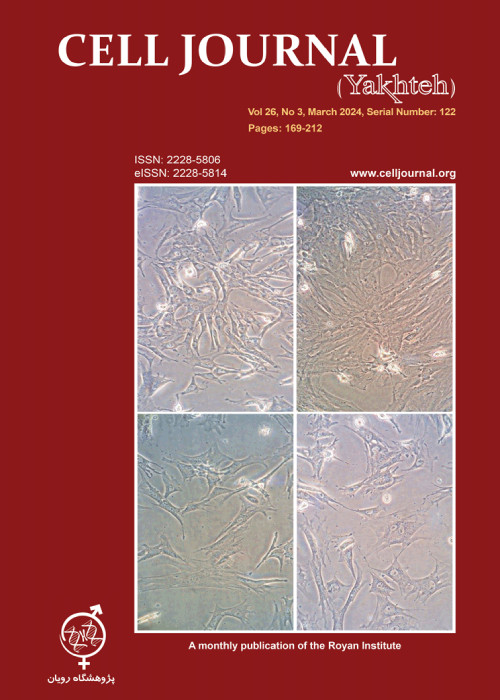Stress Hormone and Oxidative Stress Biomarkers Link Obesity and Diabetes with Reduced Fertility Potential
Author(s):
Article Type:
Research/Original Article (دارای رتبه معتبر)
Abstract:
Objective
Tilting the balance in favor of antioxidant agents could increase infertility problems in obese and diabetic individuals. The aim of this study was to evaluate oxidative stress status in semen of men with type 2 diabetes and obesity to investigate whether excessive amounts of oxidative stress, as a result of diabetes and obesity, influence infertility potential.
Materials and Methods
A case-control study was conducted in men (n=150) attending the Infertility Center of Royan Institute between December 2016 and February 2017. Participants were categorized into four groups; normal weight (BMI<25 kg/m2) and non-type-2 diabetic (control=40), obese and non- type-2 diabetic (obese=40), non-obese and type- 2 diabetic (Nob-DM=35), and obese and type-2 diabetic (Ob-DM=35). The semen analysis was performed according to the World Health Organization criteria. Oxidative stress, DNA fragmentation, sperm apoptosis, and total antioxidant capacity (TAC) were evaluated in semen samples of men. Serum glucose, HbA1c, cortisol, and testosterone levels were determined using the enzyme-linked immunosorbent assay (ELISA) method.
Results
Compared with the control group, sperm motility, progressive motility, and normal morphology were significantly decreased in the obese, Nob-DM, and Ob-DM groups (P<0.01). The obese, Nob-DM, and Ob-DM groups showed significantly lower levels of TAC and higher amounts of oxidative stress, early apoptotic sperm, and the percentage of DNA fragmentation as compared with the control group (P<0.05). Testosterone concentration was decreased in the obese, Nob-DM, and Ob-DM groups when compared with healthy individuals (P<0.05), whereas the cortisol level was significantly increased in the Nob-DM and Ob-DM groups in comparison to the obese and control group (P<0.01).
Conclusion
Increased amount of reactive oxygen species (ROS) levels and DNA fragmentation in men affected by either diabetes or obesity could be considered prognostic factors in sub-fertile patients, alerting physicians to an early screen of male patients to avoid the development of infertility in prone patients.Keywords:
Language:
English
Published:
Cell Journal (Yakhteh), Volume:21 Issue: 3, Autumn 2019
Pages:
307 to 313
magiran.com/p1985762
دانلود و مطالعه متن این مقاله با یکی از روشهای زیر امکان پذیر است:
اشتراک شخصی
با عضویت و پرداخت آنلاین حق اشتراک یکساله به مبلغ 1,390,000ريال میتوانید 70 عنوان مطلب دانلود کنید!
اشتراک سازمانی
به کتابخانه دانشگاه یا محل کار خود پیشنهاد کنید تا اشتراک سازمانی این پایگاه را برای دسترسی نامحدود همه کاربران به متن مطالب تهیه نمایند!
توجه!
- حق عضویت دریافتی صرف حمایت از نشریات عضو و نگهداری، تکمیل و توسعه مگیران میشود.
- پرداخت حق اشتراک و دانلود مقالات اجازه بازنشر آن در سایر رسانههای چاپی و دیجیتال را به کاربر نمیدهد.
In order to view content subscription is required
Personal subscription
Subscribe magiran.com for 70 € euros via PayPal and download 70 articles during a year.
Organization subscription
Please contact us to subscribe your university or library for unlimited access!


